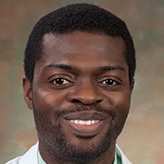 Sonya Smith has been named executive director of the Research Institute Autonomy at Howard University in Washington, D.C. She joined the faculty at Howard University in 1995, and became the first woman tenured professor in the university’s department of mechanical engineering. In addition to her teaching appointment, she serves as director of the Atmospheric Sciences Program within the College of Engineering and Architecture.
Sonya Smith has been named executive director of the Research Institute Autonomy at Howard University in Washington, D.C. She joined the faculty at Howard University in 1995, and became the first woman tenured professor in the university’s department of mechanical engineering. In addition to her teaching appointment, she serves as director of the Atmospheric Sciences Program within the College of Engineering and Architecture.
Dr. Smith is a graduate of Valdosta State University in Georgia, where she majored in mathematics with an emphasis in computer science. She was the first Black woman to receive a Ph.D in mechanical and aerospace engineering from the University of Virginia.
 Asha Shepard has been promoted to associate professor of economics with tenure at Goucher College in Baltimore, Maryland. A member of the Goucher College faculty since 2018, he also serves as director of the master’s degree program in applied policy analysis. As a economist, he specializes in education policy and criminal behavior.
Asha Shepard has been promoted to associate professor of economics with tenure at Goucher College in Baltimore, Maryland. A member of the Goucher College faculty since 2018, he also serves as director of the master’s degree program in applied policy analysis. As a economist, he specializes in education policy and criminal behavior.
Dr. Shepard holds a bachelor’s degree from Pepperdine University in Malibu, California, a master’s degree from the University of San Francisco, and a Ph.D. in economics from the University of California, Santa Cruz.
 Kim Grainger has been promoted to senior vice provost for faculty excellence at North Carolina State University. She has been with the university since 2021, serving as the associate vice provost for academic personnel and policy. Previously, she was the assistant vice president of academic administration at the New College of Florida.
Kim Grainger has been promoted to senior vice provost for faculty excellence at North Carolina State University. She has been with the university since 2021, serving as the associate vice provost for academic personnel and policy. Previously, she was the assistant vice president of academic administration at the New College of Florida.
Grainger is a graduate of Hampton University in Virginia, where she majored in molecular biology. She holds a master’s degree in public health and a juris doctorate from the University of North Carolina at Chapel Hill.
 Adegbenga Bankola has been promoted to full professor of internal medicine at Virginia Polytechnic Institute and State University. He serves as chief of the division of rheumatology at Carillon Clinic and director of Virginia Tech’s rheumatology fellowship program.
Adegbenga Bankola has been promoted to full professor of internal medicine at Virginia Polytechnic Institute and State University. He serves as chief of the division of rheumatology at Carillon Clinic and director of Virginia Tech’s rheumatology fellowship program.
Dr. Bankola completed his medical degree at the University of Ibadan in Nigeria.
 La Marr Jurelle Bruce has been named a 2024-2025 External Faculty Fellow at the Stanford University Humanities Center. He currently serves as an associate professor and director of graduate studies in the department of American studies at the University of Maryland. His research expertise on Black expressive cultures led him to authoring How to Go Mad Without Losing Your Mind: Madness and Black Radical Creativity (Duke University Press, 2021).
La Marr Jurelle Bruce has been named a 2024-2025 External Faculty Fellow at the Stanford University Humanities Center. He currently serves as an associate professor and director of graduate studies in the department of American studies at the University of Maryland. His research expertise on Black expressive cultures led him to authoring How to Go Mad Without Losing Your Mind: Madness and Black Radical Creativity (Duke University Press, 2021).
Dr. Bruce is a cum laude graduate of Columbia University, where he double-majored in English and comparative literature and African American studies. He holds a Ph.D. in African American and American studies from Yale University.

